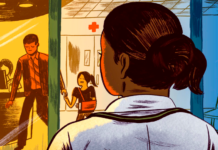BMJ Editorial Calls for Regulations to Address Medical Fraud in UK
Richard Smith, the chair of the board of trustees at BMJ, penned an editorial yesterday bringing increased scrutiny to research misconduct and medical fraud in the UK. Smith identifies denial about the seriousness of the problem and the reluctance of universities to submit themselves to reviews as the two major reasons that Britain has failed to address these issues.
Forced Treatment Ineffective: Advocacy Essential
Most Americans would agree that we have problem with mental health in this country, but what many do not know when they consider that people who are in distress are not getting the help they need is that hospitals in this country are not giving people a choice when they are in the most need. This is based on laws that currently exist in 45 US States, which allow individuals to be petitioned into an inpatient psychiatric unit against their will if they are deemed to be a “danger to themselves or others.” I have worked for 3.5 years as a Peer Support Specialist within my local public mental health system, where I see this happen to the individuals I serve, on a regular basis. I myself have been forced.
The Interim Report on the Independent Review of the Mental Health Act: A Response
The report has succeeded in being supremely ambitious in its breadth, whilst remaining disappointingly cautious in its goals. The emphasis is on smaller changes in the immediate future, and kicking more progressive reform into the long grass. It alludes to but does not enshrine a rights-based approach.
After the Black-Box: Majority of Children Starting SSRIs Still Receiving Too High of Dose
In 2004, the FDA added a black-box warning to SSRI antidepressants on the increased risk of suicide among children taking these drugs. A new study suggests that this warning has increased the proportion of children who begin an antidepressant on a low dose, but the majority are still receiving higher than recommended doses.
“Mental Health Care Bill Hits House Amid Concerns”
The Boston Herald reports on mental health care reform bills moving through both houses of Congress. Lawmakers warn, however, “that some aspects of the legislation could create greater barriers to access mental health care for some.”
“The Rise and Fall of the Blockbuster Antipsychotic Seroquel”
Martha Rosenberg highlights how the popular antipsychotic Seroquel is a perfect example of how direct-to-consumer advertising made billion dollar blockbuster drugs possible before side-effects...
Equal Legal Capacity or ‘Supported Decision-Making’?
At a recent conference on legal capacity, I was struck by the failure of another invited expert to adhere to the paradigm of supported decision-making as articulated by the CRPD Committee. We still need to work to ensure that this paradigm is well understood and appreciated, despite the progress made in national reforms.
“Where Police Violence Encounters Mental Illness”
In The Opinion Pages of the New York Times, Matthew Epperson discusses the devastating results of police acting as the primary responders to mental health crises. “If we are to prevent future tragedies, then we should be ready to invest in a more responsive mental-health system and relieve the police of the burden of being the primary, and often sole, responders.”
Psych Rights Wins Legal Battle in Alaska
On Friday, Psych Rights won a legal fight in Alaska Supreme Court reversing an order for an involuntary psychiatric evaluation.
Opinion →
Evolution or Revolution? Why Western Psychiatry Won’t Change by Incremental Steps
...but how realistic is it to expect that the biological skew of Western psychiatry can be sustainably changed one small step at a time?
My Response to the FDA’s ECT Rule Change
I lived through forced ECT from 2005-2006 at the Institute of Living in Hartford, Connecticut. My experience with ECT was the impetus for me to become involved in the antipsychiatry and Mad Pride movements, although I am not entirely opposed to voluntary mental health treatment. The following is the comment I submitted to the FDA on its proposal to down-classify the ECT shock device.
Mental Health Nurses Do Not Routinely Assess for Effects of Antipsychotic Medications
Researchers believe that side-effect monitoring is critical because of the increase in the use of antipsychotics
Compulsory Treatment Laws in Germany’s Psychiatric Wards
The science magazine RUBIN provides an update on patients’ rights to refuse treatment in Germany's psychiatric wards. “In psychiatric wards in Germany, patients used to be medicated indiscriminately against their will if doctors considered it necessary. It was only after a Federal Constitution Court ruling a few years ago that patient autonomy has been strengthened.”
The Ghost of Research Future
Two facts about Robert Califf are beyond question. He is an expert on clinical trials, who is already seen as a leading architect of the future of medical research. And as the New York Times put it, he has “deeper ties to the pharmaceutical industry than any FDA commissioner in recent memory”. A lot of senior figures in medicine support Califf in spite of his ties to Pharma. The guy is just so bright, and understands the nuts and bolts of drug research so well! Surely a person like this is more useful than some outsider who offers only a squeaky-clean resume, they argue.
Psychiatric Diagnosis Can Lead to Epistemic Injustice, Researchers Claim
A discussion of the role of epistemic injustice in the experiences of patients diagnosed with psychiatric disorders.
Free ‘Commercial Speech’ Cases Threaten Pharmaceutical Regulation
Two recent court rulings argue that pharmaceutical companies have a first amendment right to market drugs “off-label” with a lack of scientific evidence, threatening...
Leah Harris and Tim Murphy Talk “Mental Illness and the Law”
Today on Radio Times, U.S. Representative Tim Murphy (R-PA), Mark Salzer, professor and chair of the Department of Rehabilitation Sciences at Temple University, and Leah...
“Mental Health Bill Caters to Big Pharma and Would Expand Coercive Treatments”
Oryx Cohen at TruthOut explains why the "Helping Families in Mental Health Crisis Act (HR 2646) - commonly known as the 'Murphy Bill' - appears to cater more closely to the desires of pharmaceutical companies than to the actual needs of people in psychological distress, perhaps because of Murphy's connections to key lobbyists." "If the Murphy Bill is passed, psychiatric hospitals and pharmaceutical companies will reap huge financial benefits as a result of increased hospitalization and forced treatment."
Genetic Tests Marketed to Psychiatrists Not Supported by Research
With the explosion of genetic testing and the emerging field of pharmacogenetics, patients can now take a DNA test and receive psychiatric drug recommendations customized to fit their genetic makeup. In an editorial for the latest issue of the Journal of Nervous and Mental Disease, Columbia University Psychiatrist Robert Klitzman warns that clinicians need to be aware of the limitations of these genetic tests being marketed to them.
“Plan for Your Next Breakdown”
Start shopping for the best hospitals, doctors and therapies while you're feeling good, suggests Lisa Keith on her PsychCentral blog Bipolar Lifehacks, because when...
Benzodiazepine Prescriptions Increase with Overdose Deaths
A recent article in the American Journal of Public Health calls for policy level interventions to reduce the use of benzodiazepines, drugs commonly prescribed...
We Need to Encourage People to Make Advance Directives
In this piece for STAT, Jennifer Adaeze Okwerekwu describes the value of psychiatric advance directives for those at risk of experiencing an emotional crisis.
"'It’s something that can...
“Saving Congressman Murphy from Fraudulent Information”
Dennis Embry, a clinical psychologist and government consultant on mental health, shares a letter he sent to congressman Murphy warning him about how he may have been misled concerning his mental health bill. “I am specifically writing you about erroneous, false information you’ve been given about the National Registry of Evidence Base Programs and Practices. That erroneous information is likely to cause serious problems, which have been withheld from you.”
The CHRUSP Call to Action, and Its Significance
Various instruments of the United Nations have commented on forced treatment, or involuntary confinement, or both (for details, see Burstow, 2015a), and a number of truly critical additions to international law have materialized. Arguably, the most significant of these is the Convention on the Rights of Persons with Disabilities. What makes it so significant? For one thing, it is because this landmark convention puts forward nothing less than a total ban on both involuntary treatment and the involuntary confinement of people who have broken no laws.
United Nations Rep Brings Attention to Human Rights Violations in Psychiatry
Dr. Dainius Pūras argues that the status quo in mental health treatment is no longer acceptable and demands political action to promote human rights.
















